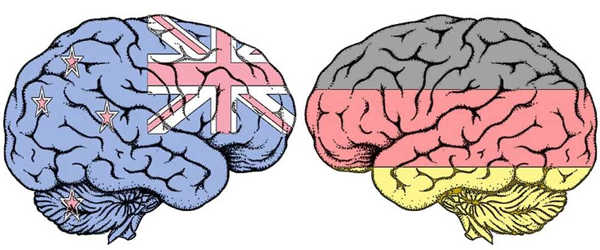Learning a new language has numerous advantages. Languages open doors to different cultures, allowing us to communicate with people from all over the world. However, learning a new language entails more than just having a simple conversation or knowing different words, concepts, and metaphors.
A music-related hobby improves language skills and influences speech processing in the brain, according to research. According to a new study, the opposite is also true: learning a foreign language can affect how the brain processes music.
Mari Tervaniemi of the University of Helsinki’s Faculty of Educational Sciences investigated the link in the brain between language acquisition and music processing in Chinese elementary school pupils aged 8-11 in collaboration with researchers from Beijing Normal University (BNU) and the University of Turku. Before and after the programs, the children’s brain responses associated with auditory processing were measured. Tervaniemi compared the results to children who had participated in other training programs.
Learning a new language can affect musical processing in children, researchers report. Findings support the theory that musical and linguistic functions are closely linked in the developing brain.
“The findings showed that both the music and the language programs had an effect on auditory signal processing in the brain,” Tervaniemi says.
Learning accomplishments range from language acquisition to music composition. Surprisingly, participation in the English training program improved the processing of musically relevant sounds, especially pitch processing.
When you’re trying to complete a task while distracted, the brain areas responsible for that are also used. The task could be something as simple as trying to listen to something in a noisy environment or performing a visual task. Muscle memory acquired through the use of two languages can be applied to a variety of skills.

“One possible explanation for the findings is the children’s language backgrounds, as understanding Chinese, which is a tonal language, is heavily reliant on pitch perception, which could have equipped the study subjects with the ability to use that trait when learning new things. As a result, participating in a language training program aided early neural auditory processes more than musical training.”
According to Tervaniemi, the findings support the idea that musical and linguistic brain functions are intertwined in the developing brain. Auditory perception is influenced by both music and language learning. Prior studies have not systematically investigated whether they produce similar or different results in the developing brain of school-aged children.
The number of children studied using electroencephalogram (EEG) recordings at the start of the training programs was 120, with more than 80 of them participating in EEG recordings a year later, after the program.
The children had a lot of opportunities to sing during their music lessons, as they were taught to sing from both hand signs and sheet music. Simultaneous learning was emphasized in the language training program, which emphasized the combination of spoken and written English. At the same time, the English language has a different orthography than Chinese. Throughout the school year, the one-hour program sessions were held twice a week after school on school grounds, with approximately 20 children and two teachers attending at a time.
“The children liked the content of the lessons in both programs because it was very interactive and had many means to support communication between the children and the teacher,” says Professor Sha Tao, who led the Beijing study.
Bilingualism appears to improve executive function in the brain, according to studies. It aids in ignoring distractions in order to stay focused, switching attention from one thing to another on command, and remembering information. One of the most effective and practical ways to increase intelligence, keep your mind sharp, and protect your brain against aging is to learn another language.
















